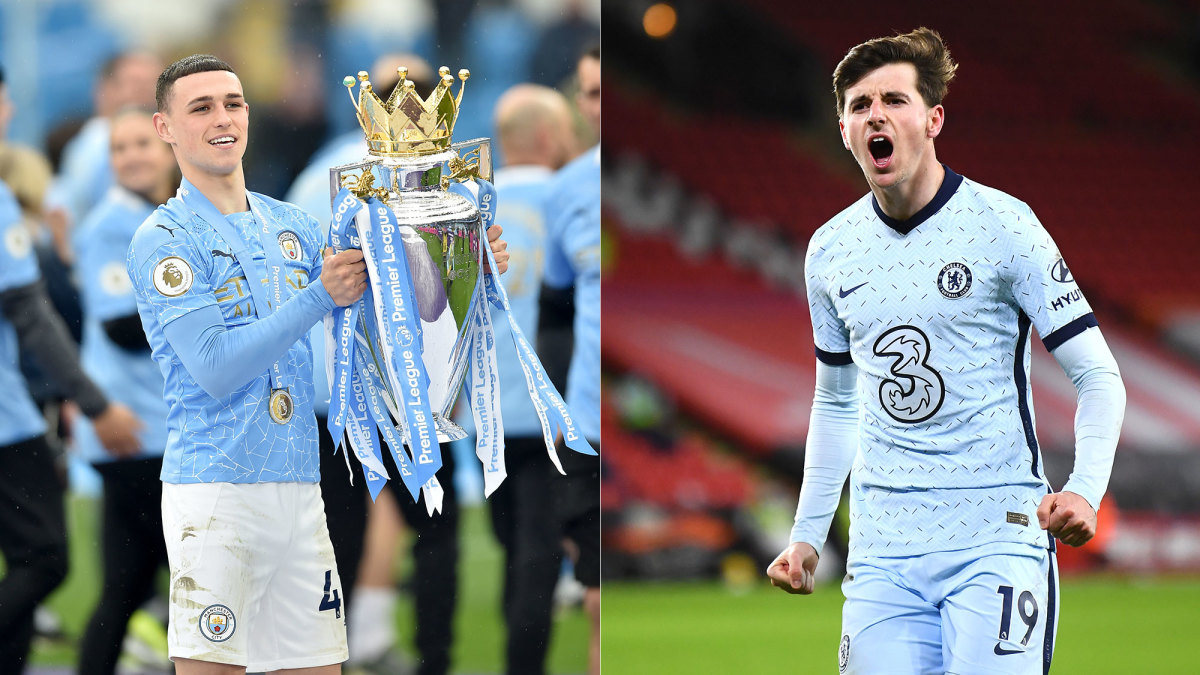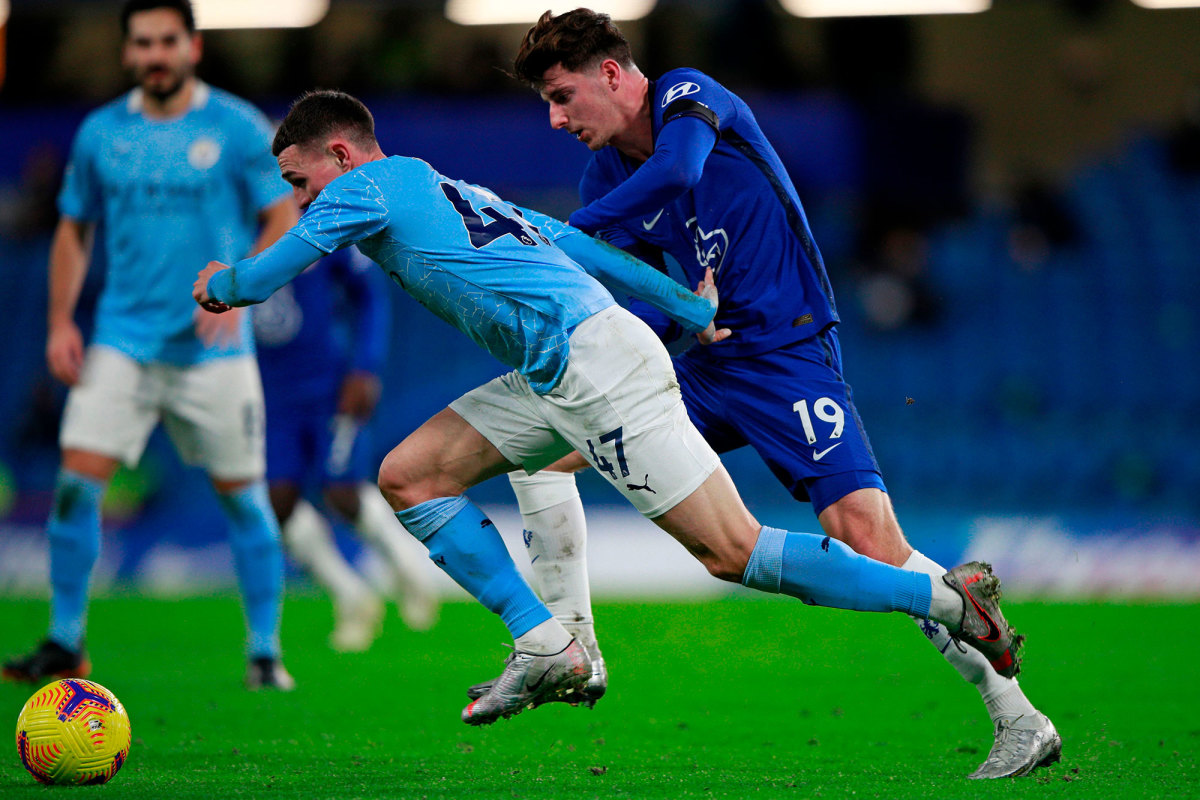The Two Dynamic, Young English Talents at the Heart of an All-English Champions League Final

This Saturday's Champions League final will be the third all–Premier League affair. In the first, between Manchester United and Chelsea in 2008, 10 English players started. In the second, between Liverpool and Tottenham in 2019, there were seven. The likelihood is on Saturday, as Manchester City face Chelsea, there will be at most six, which would be fewer "home" players than in any of the previous seven one-nation finals. This might be a battle of two English clubs, but it is not an especially English occasion.
Perhaps that is not particularly revelatory. The Premier League for several years has been a world league that happens to be played in England. The owners often aren’t English, the coaches often aren’t English, the players often aren’t English and the fans often aren’t English. But there are two other details that leap out.
The first is that of those six potential starters Saturday, three—Man City's Kyle Walker and Chelsea's Reece James and Ben Chilwell—are fullbacks. Add in the fact that the biggest debate over the squad England manager Gareth Southgate selects for the Euros is at right back, with four selected in the provisional 33-man team, and it becomes apparent that, for reasons that are not immediately obvious, England has become a world leader in fullbacks.
But maybe more significant is the nature of two of the other three likely English starters: Mason Mount and Phil Foden. Mount is 22 and Foden turns 21 on Friday. Both have emerged this season as central figures to their clubs' success. Both are likely to be in Southgate’s first England lineup at the Euros. And perhaps what is most encouraging—from an English point of view—is that both seem so un-English.

In 2012, the Elite Player Performance Plan (EPPP) was launched by Premier League clubs to streamline the academy system and try to increase the number of homegrown players. It was highly controversial, and it may be that the longer-term impact on the academies of smaller clubs is detrimental. But in terms of its objective, generating more high-level players for England, it has been an outstanding success.
England’s record in youth football over the two decades before that had been desperately poor. The first sign of things beginning to change came in 2017 when England won the Under-20 World Cup. Later that year, it also won the Under-17 World Cup. Foden scored twice in the final against Spain and was named the top player of the tournament.
But far more important than the victories themselves was the style with which they were achieved. England, it became apparent, had finally moved on from the solid, reliable, slightly predictable football that had dominated the thinking in the 1980s. This was a more modern style, based around intelligence in possession. Foden was at the heart of that.
He is very hard to pin down. His role for Man City this season has largely been drifting in from the left, but he is certainly not a winger and is not even really a left-sided forward. He has a remarkable capacity to find space, and a slippery purposefulness on the ball that is reminiscent of a young Paul Scholes or Peter Beardsley. There is something resembling Andres Iniesta in his use of the ball, and yet he is a more physically dynamic figure than any of those three. He has scored nine league goals this season, but perhaps more important were his goals in both legs of the Champions league quarterfinal win over Borussia Dortmund.

With Mount, similarly, it is his game understanding and tactical awareness that set him apart. When England came from behind to beat Belgium in the Nations League, Mount’s role on the right of the forward line was critical. He has since gravitated into a central advanced midfield role, but he can also play deeper in the midfield. He is not a flashy player, but he is technically excellent, his use of the ball exemplary.
In each of the last four seasons—in loan spells at Vitesse and Derby, and then at Chelsea—he has managed between five and 10 league goals. His ability to arrive late in the box has drawn a comparison to Frank Lampard, the manager who oversaw his development at Derby and then Chelsea. But the evidence so far is that Mount is far more tactically versatile than Lampard and has the discipline and intelligence to play deeper.
The days when young English players were defined by their pace or their stamina are gone. Technical and tactical excellence have come to the fore. Of far wider significance than who comes out on top on Saturday is what Foden and Mount represent as the leaders of a new, smarter generation of English players.
More Soccer Coverage:
